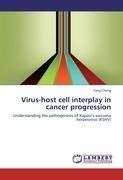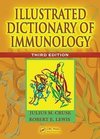
-
 Anglický jazyk
Anglický jazyk
Virus-host cell interplay in cancer progression
Autor: Fang Cheng
Human tumor viruses contribute to 15-20% of human cancers worldwide. Kaposi's sarcoma herpesvirus (KSHV) is an etiological agent for Kaposi's sarcoma (KS) and two other malignancies. KS is the most common cancer in HIV-infected untreated individuals and... Viac o knihe
Na objednávku
54.63 €
bežná cena: 60.70 €
O knihe
Human tumor viruses contribute to 15-20% of human cancers worldwide. Kaposi's sarcoma herpesvirus (KSHV) is an etiological agent for Kaposi's sarcoma (KS) and two other malignancies. KS is the most common cancer in HIV-infected untreated individuals and remains a primary cause of cancer deaths in many subequatorial African countries as a result of the AIDS pandemic. This book first introduces an unbiased gain-of-function human kinome cDNA screen on KSHV reactivation in infected human cells. By developing a novel 3D cell culture model reflecting the context of virus-host cell interaction, this book further reveals the first lymphatic-specific endothelial-to-mesenchymal transition (EndMT) induced by a human tumor virus, giving rise to infected, invasive cells, and providing the virus a permissive cellular microenvironment for efficient spread of the virus. This book should shed lights on understanding the long-term persistence of oncogenic infectious agents in infected individuals, allowing time for the multi-step tumorigenesis. It should also be especially useful for professionals who are interested in developing targeted therapies to prevent or at least slow down KS progression.
- Vydavateľstvo: LAP LAMBERT Academic Publishing
- Rok vydania: 2012
- Formát: Paperback
- Rozmer: 220 x 150 mm
- Jazyk: Anglický jazyk
- ISBN: 9783659105159












